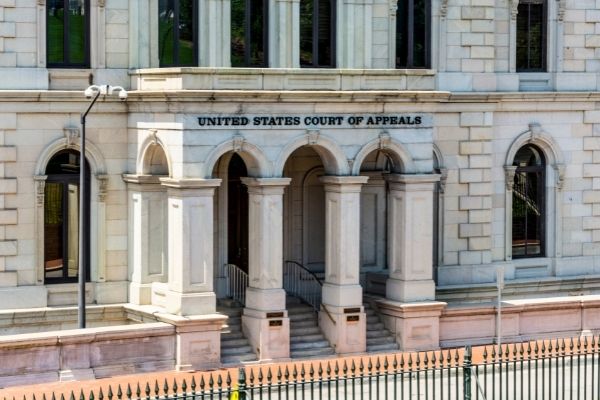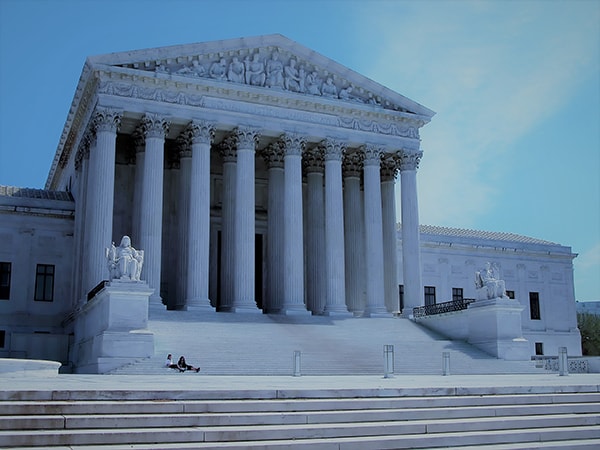Federal Crime Lawyer: Defending Your Rights Versus Serious Federal Charges
Federal Crime Lawyer: Defending Your Rights Versus Serious Federal Charges
Blog Article
Demystifying the Refine of Federal Appeals: What You Required to Know
Navigating the intricate world of government appeals can frequently look like traversing uncharted waters for those not familiar with the procedure. Comprehending the subtleties of appellate court jurisdiction, the intricacies of filing a notice of charm, presenting an engaging brief, and making a persuasive dental disagreement are essential parts that can substantially affect the result of a case. By unwinding the layers of complexity bordering government charms, individuals can obtain a more clear understanding right into the devices that control this critical point of the legal system.
Understanding Federal Appeals Refine
Diving right into the complex realm of the government charms procedure introduces a organized and methodical trip through the judicial system - little rock federal criminal appeal lawyers. Federal appeals work as a crucial system for reviewing choices made by lower courts. Understanding this process is necessary for any individual included in lawful proceedings at the government degree
The procedure normally begins with a celebration dissatisfied with a lower court's ruling filing a notification of appeal. This causes a testimonial by a greater court, where a panel of judges evaluates the lawful debates provided by both celebrations. Briefs outlining the lawful reasoning behind each party's position are submitted, and dental debates might be heard to make clear intricate problems.
The appellate court's decision is based on a detailed exam of the reduced court's process and the arguments presented. When the appellate court reaches a decision, it can verify, reverse, remand, or customize the lower court's judgment, offering quality and finality to the lawful conflict.
Appellate Court Jurisdiction Explained

Appellate courts have territory over particular kinds of situations, normally those involving lawful mistakes, step-by-step problems, or concerns of regulation instead of factual disputes. The territory of appellate courts is usually described in statutes and legislations that govern the court system. Understanding appellate court territory is essential for parties included in the appeals procedure as it determines whether a case is qualified for evaluation and the extent to which the appellate court can intervene in the lower court's choice.
Declaring a Notification of Allure
The initial step in starting the government appeals process includes filing a Notice of Charm with the suitable appellate court. federal tax fraud appeal lawyers. This critical document officially alerts the court and the various other celebrations included in the situation that the appealing event means to look for an evaluation of the lower court's choice. Submitting a Notification of Charm is a stringent procedural need that establishes the appellate process in activity
When preparing the Notice of Charm, it is important to make sure compliance with the specific guidelines and standards of the relevant appellate court. The paper should typically include details such as the instance name, the reduced court's name, the date of the judgment being appealed, and a concise statement indicating the premises for the charm.
When submitting a Notice of Charm,Timeliness is of the significance. Missing the deadline for submitting this paper can result in the allure being disregarded, emphasizing the significance of exact and timely initiation of the charms process. It is a good idea to seek lawful advice to browse the complexities of submitting a Notice of Allure efficiently.
Instruction and Oral Disagreement
In the appellate process, presenting composed briefs and taking part in oral arguments play crucial duties in advocating for the appealing party's placement prior to the appellate court. Briefs are detailed legal papers that describe the events' disagreements, lawful authorities, and federal appeals lawyers in Idhao evaluation sustaining their positions. These created submissions offer the court with a comprehensive understanding of the realities of the case, the pertinent regulation, and why the appealing celebration thinks the lower court's choice ought to be rescinded.
Complying with the entry and evaluation of the briefs, dental arguments use the parties a possibility to additional clarify their positions, address any questions the appellate judges might have, and emphasize bottom lines from their created briefs. Dental arguments are a chance for the lawyers to encourage the courts through spoken campaigning for and actions to inquiries from the bench.

Receiving the Appellate Court Decision

Verdict
Comprehending the appellate court jurisdiction, submitting a notice of charm, preparing briefs, and presenting oral arguments are all vital elements of this procedure. Ultimately, getting the appellate court decision can give clarity and resolution to lawful conflicts.
As we proceed from comprehending the government charms process to dissecting the ins and outs of appellate court territory, a basic aspect comes to light pertaining to the authority and restrictions of these greater courts in the legal landscape. Appellate court territory refers to the range of situations that a particular appellate court has the power to choose and assess upon. Unlike test courts that listen to cases for the initial time, appellate courts are restricted to reviewing decisions made by lower courts. Comprehending appellate court territory is essential for celebrations entailed in the allures process as it determines whether a case is qualified for testimonial and the extent to which the appellate court can interfere in the lower court's choice.
Whether the appellate court affirms, turns around, or remands the lower court's choice, understanding the ramifications of the judgment is vital for all parties involved in the appellate process.
Report this page